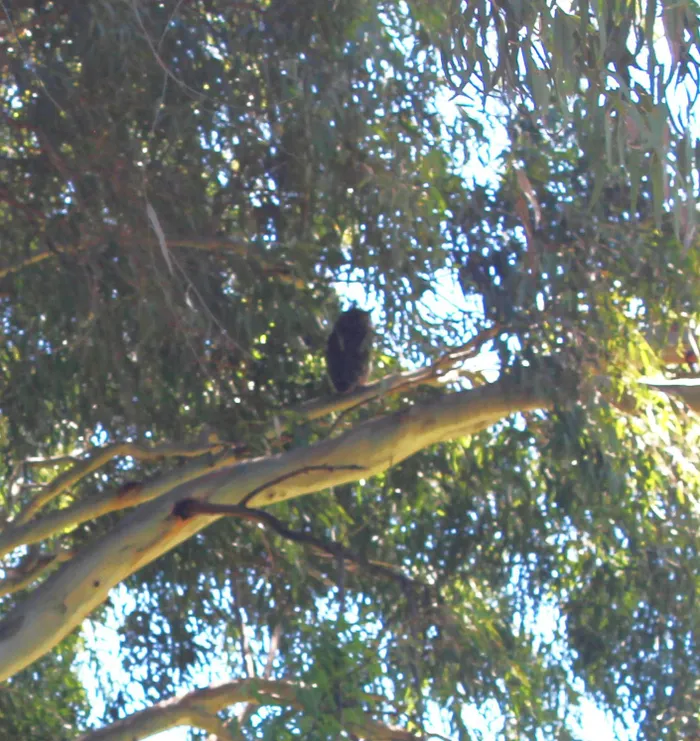Protect our owls: Attend the Keurboom Park Association's emergency meeting

An owl perching on a branch of a tree in Keurboom Park.
Image: Wesley Ford
The Keurboom Park Association (KPA) has called an emergency public meeting to find solutions to the deaths of owls in Keurboom Park, believed to be caused by secondary rodenticide poisoning.
In a statement, the KPA said a pair of breeding owls had died in the past year after ingesting poisoned rodents.
They also shared in the statement that there are no safe poisons and many rodenticides are non-biodegradable.
The KPA noted that while a single rat can produce up to 1 000 pups a year, it takes just one poisoned rat to kill an owl. In a healthy ecosystem, one owl can naturally kill about 1 000 rats.
The organisation also shared several tips that the public can follow to lessen the impact of rats:
- Individuals must learn not to litter in the environment.
- Keep food and other waste in rat-proof bins
- For unwanted rat visitors, use ecotraps or snaptraps.
- Rats dislike strong scents like ammonia and peppermint oil.
Ward 58 councillor Richard Hill said prized owls were killed recently by being infected with rat/mouse poison, as confirmed by the veterinarian who attempted unsuccessfully to save the birds. “While this problem is not in my area of expertise, I am aware of a range of options. Using traps with spring-loaded doors and releasing the rodent elsewhere displaces the problem animal,” he said.
Mr Hill said some traps deliver an instant blow that kills outright, but these might just immobilise a leg or tail, causing ongoing suffering.
According to the City’s Health Department, first-generation rodenticides are used in environmentally sensitive areas because they are less likely to cause secondary poisoning. The product is formulated to minimise impacts on non-target species, including owls and other wildlife, which is an essential consideration for the department.
While the KPA said that the authorities should do more to inform and educate the public on environmental hygiene, the City’s Health Department said it was not part of the City's Health initiatives, and could be considered in future.
The health department added that rats thrive where food, water, and shelter are easily available, and poorly managed waste creates all three. It urged residents to use refuse bins that can be properly closed and ensure that their refuse is collected regularly. Communities should discourage illegal dumping and support public clean-up efforts.
The City’s health department indicated that instead of relying on poisons, it’s better to prevent infestations through cleanliness, exclusion, and good sanitation. While the use of poisons should always be a last resort, if they absolutely must be used, it is less harmful to use products that require multiple feedings over several days to be lethal, making them less potent and with a lower risk of secondary poisoning to wildlife compared to newer-generation products.
The KPA, a voluntary non-profit dedicated to protecting Keurboom Park’s environment, will host the meeting on Monday, October 20, at 6pm at the Captain’s Cabin, Western Province Sports Centre, Avenue De Mist, Rondebosch. Residents can RSVP by emailing info@keurboompark.org.za.
Related Topics: